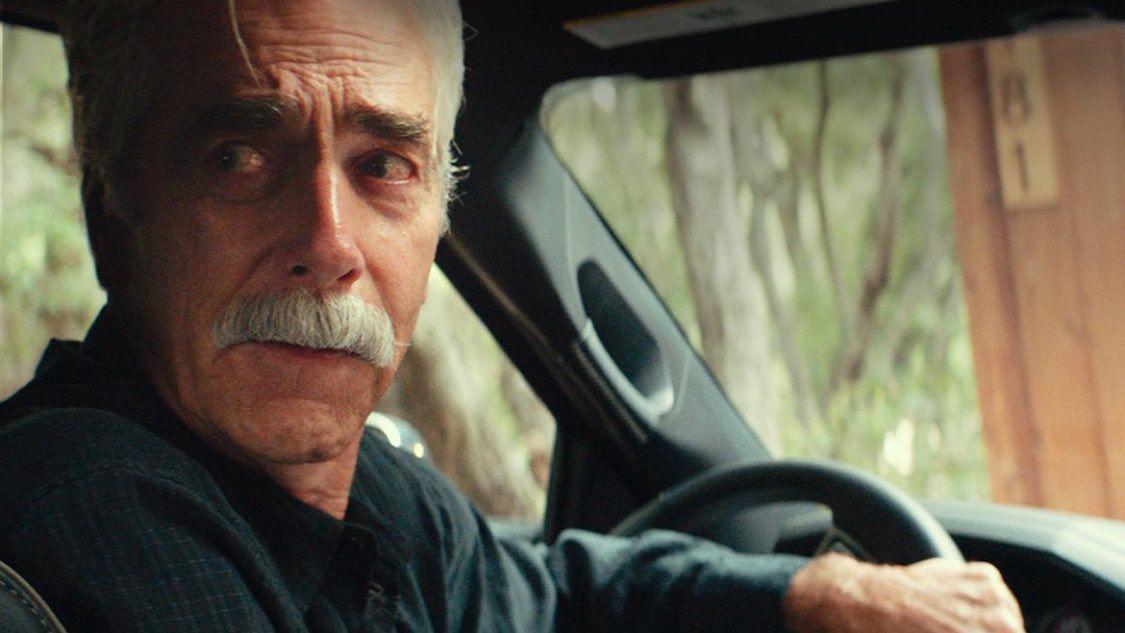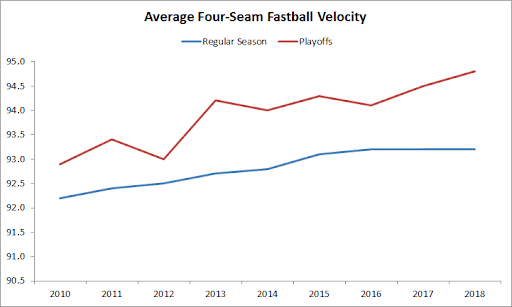
After a truly inexplicable Golden Globes and an increasingly worrisome lean toward Green Book, the Oscar nominations are finally here. That was good news for some—and us, the viewers!—but bad news for many more.
Winner: Suspense (Sort Of)
Late Saturday night, the Producers Guild of America—typically considered a Best Picture bellwether, as it has overlapped with eight of the past 10 winners—handed its top award to Peter Farrelly’s controversial racial buddy comedy Green Book. A (fraught) Twitter consensus emerged: Green Book, which also won the Golden Globe for Best Motion Picture—Musical or Comedy, was the official Oscar favorite.
Fast-forward to 5:30 a.m. PT Tuesday morning. Green Book landed the expected nominations for Best Picture, Best Actor for Viggo Mortensen, and Best Supporting Actor for the presumptive favorite Mahershala Ali; it also managed a nomination in Best Original Screenplay, despite an ongoing conversation about cowriter Nick Vallelonga, objections from the family of Dr. Don Shirley, and the larger questions of who gets to tell and profit from stories in Hollywood. But Farrelly, who was nominated by both the Golden Globes and the Directors Guild of America, is noticeably missing from the Best Director category; add that to happy-surprise nominations for Yalitza Aparicio (Best Actress) and Marina de Tavira (Best Supporting Actress) from Roma, which co-leads the pack with 10 Oscar nominations, and suddenly a Netflix movie is looking like the new front-runner. To keep the intrigue going: neither the casts of Roma nor Green Book are nominated for Best Ensemble at the Screen Actors Guild Awards, the next station of the cross in the never-ending Oscar season. Both, meanwhile, are nominated for Best Picture at the BAFTAS on February 10, along with The Favourite, which also took home 10 Oscar nominations Tuesday (and which happens to be about British people). Oscar voting begins on February 12. This is still a competition. —Amanda Dobbins
Loser: A Star Is Born’s Big Five Sweep
Only three films—It Happened One Night, One Flew Over the Cuckoo’s Nest, and The Silence of the Lambs—have managed to collect the awards for Best Picture, Best Director, Best Actor, Best Actress, and Best Screenplay (Original or Adapted), otherwise known as the Oscars’ Big Five. A Star Is Born, despite many pundits speculating otherwise, will not be the fourth. Poor Bradley Cooper, who has spent most of this season with a frozen grin on his face watching other people win awards, was not even nominated in the Best Director category—one of the few true surprises in the nominations, and yet another snub for the increasingly overlooked A Star Is Born. But, on the other hand … —AD
Winner: Sam Elliott and His Voice

It was you we idolized all along, etc. —AD
Winner: Belated Firsts
Going a bit heavier on movies like Roma and The Ballad of Buster Scruggs than perhaps expected, the Academy’s nominations had a real “this time we watched the movies” feel to them. (Another factor in the rather-pleasing list of nominations: the Academy’s ongoing efforts to improve and diversify its membership ranks.) This also showed in a few first-time nominees who, when I tell you who they are, may prompt spit takes: Spike Lee picked up his first directing nod for BlacKkKlansman, Paul Schrader picked up his first overall Oscar nom, Original Screenplay for First Reformed, and Sam Elliott earned a nomination for the first time as well for his supporting role in A Star Is Born.
That Lee and Schrader had never been recognized in their respective categories is particularly egregious. Lee has always been at odds with the Academy, even though he did receive an honorary award in 2015. You can go all the way back to 1990—when Driving Miss Daisy won Best Picture while Do the Right Thing failed to even earn a nomination in the top category—for evidence of how deeply he’s been snubbed. “To be honest, after Do the Right Thing, I said, ‘That’s it,’” Lee told GQ in 2018. “That’s not to say I wasn’t happy to get the honorary award, but as far as Oscars, my thing has always been my body of work. What film won best film of 1989? ... Driving Miss motherfucking Daisy. Who’s watching that film now?” As for Schrader, he’s long been your favorite screenwriter’s favorite screenwriter. The man wrote Taxi Driver and Raging Bull. While First Reformed didn’t pick up as many nominations as many had hoped, a nod for Schrader in the Original Screenplay category was—especially at this point—a must.
It remains to be seen whether either of these three will benefit from the Oscars’ tendency to hand out belated awards as a sort of mea culpa and acknowledgement of a total career. Lee will likely find the toughest competition in his category against Alfonso Cuarón of Roma; Schrader will also face Cuarón, as well as the still-breathing writing team behind Green Book, and the mere fact that First Reformed simply wasn’t one of the Academy’s favorite films in 2018. As for Sam Elliott, he may be backing out of a driveway in tears on Oscar night, as Mahershala Ali (Green Book) has been the front-runner for that award since the season started. But still, they’re nominated, finally. Thankfully we no longer need to attach that silly asterisk to their résumés. —Andrew Gruttadaro
Loser: First Man
First Man had all the trappings of an Oscar front-runner: A biopic about a Great American Man (Neil Armstrong) directed by Damien Chazelle, a young auteur fresh off the dizzying success of La La Land that nabbed him a Best Director win in 2017. But the film has been on the edge of the Oscars race for much of awards season, failing to garner much interest in the biggest categories of the year aside from Claire Foy’s Best Supporting Actress nomination at the Golden Globes. That turned out to be an omen: Chazelle, Foy, and Ryan Gosling all failed to pick up nods, as First Man was completely shut out of the Big Five categories. Still, it had some hope in the technical categories.
The film’s biggest saving grace was Justin Hurwitz’s score, which wasn’t just considered a lock for an Oscar nomination—it was the front-runner to win Best Score. (Even though the Golden Globes aren’t always the most accurate Oscars precursor, a win in that category gave the film plenty of momentum heading into Tuesday morning’s nominations.) And yet, First Man was denied a Best Score nomination, settling for four technical nominations in Sound Editing, Sound Mixing, Visual Effects, and Production Design. It’s a shame—not only because the film’s best chance of winning an Oscar was probably for Best Score, but because Hurwitz composed a gripping, emotionally lucid score in perfect harmony with its material. Listen to “The Landing” if you haven’t already—and you’ll see why this is one of the biggest snubs of the ceremony.
—Miles Surrey
Loser: If Beale Street Could Talk
It truly was a tough morning for the two men who ended up on stage together by accident at the end of the 2017 ceremony. In addition to First Man’s failure to land, Barry Jenkins’s follow-up to Moonlight, If Beale Street Could Talk, also struggled to gain much traction. Regina King earned a nomination for Best Supporting Actress and Jenkins did pick up a nod for Best Adapted Screenplay (Nicholas Britell’s stunning score was also nominated), but the movie was shut out of Best Picture, as Jenkins was from the Best Director category. At the beginning of awards season, a Chazelle-Jenkins rematch seemed like a real possibility, but movies like Roma, The Favourite, and A Star Is Born ended up swallowing any chance of that. —AG
Winner: Black-and-White Foreign Films
Two black-and-white foreign films won big in Tuesday’s nominations, with Roma and Cold War earning 10 and three nominations, respectively. The last time the Academy fell head over heels for a black-and-white foreign film was 2011’s The Artist, which ended up winning five Oscars at the 2012 ceremony, including Best Picture. While it wasn’t Crash levels of bad, The Artist’s dominance that year hasn’t aged all that well, and it’s now painted as the kind of movie that wins Oscars but fails to have any lasting cultural resonance.
So while it may seem concerning on its surface that the 2019 Oscar nominations were quite favorable to not one but two black-and-white foreign films, these movies have a lot more to offer than their French predecessor. Roma is Alfonso Cuarón’s passion project, a deeply moving film you can, and should, seek out on Netflix before the ceremony, while Pawel Pawlikowski’s Cold War is a romantic period piece that has slowly been gaining momentum ahead of Tuesday’s nominations at smaller awards bodies. Cuarón and Pawlikowski were also nominated for Best Director, only the second time the category has featured two directors from foreign films. Both films could be making some noise come February. —MS
Winner: Superheroes
Mark it down: 2019 was the year that the commercialism of the superhero revolution collided with the critical sensibilities of the Academy Awards. Black Panther racked up seven nominations on its way to a Best Picture nod; only Roma, The Favourite, and A Star Is Born were nominated for more awards. And it isn’t just Black Panther. Spider-Man: Into the Spider-Verse was nominated for Best Animated Feature and, according to Gold Derby, is the clear front-runner in that category over movies like Incredibles 2 and Wes Anderson’s Isle of Dogs.
Considering where superheroes movies were in 2009—the year The Dark Knight was shut out of the Best Picture category, which prompted the Academy to change its rules—Tuesday is a banner day that proves (a) the extent to which superhero movies have taken over Hollywood and (b) that the genre has expanded and evolved. Ryan Coogler’s Black Panther was a bewilderingly large-scale movie that built an entirely new world while injecting the action of Marvel movies with serious questions about international affairs and living while black. Spider-Verse was a bold venture that stretched the capabilities of both animated and superhero films. The unstoppable success of comic book movies in the last decade has changed Hollywood in countless ways, but it’s also opened the door for films within the genre to take more risks, creatively and narratively. Thankfully, this time the Academy has taken notice of this evolution, rather than turn up its nose at the people with the superpowers. —AG
Loser: Kumail Nanjiani’s and Tracee Ellis Ross’s Sleeping Schedule
Our hosts for the Oscar nominations were quick to remind everyone tuning in that they had to get up very early for a telecast that started at 5:20 a.m. on the West Coast. I’m certainly sympathetic; you never want to wake up before the sun rises. On the other hand, it doesn’t seem like Nanjiani has slept since being nominated for an Oscar last year. All told, Nanjiani and Ross were fun companions for the nominations, delivering cheesy but endearing morning-show-type banter, which, granted, all circled around the fact their sleeping schedules had been ruined. Guys, take melatonin tonight, get a full 10 hours, and come back in February to present that award I’m sure they’ll have you present. Thank you for your service. —MS
Loser: Burning
The Lee Chang-dong film didn’t make its way into a stacked Foreign Language category. It’s still one of the best movies of the year. —AD
Winner: The Favourite
The Favourite is an Oscars favorite (sorry), picking up 10 nominations Tuesday morning, tied with Roma for the most of any film. The Favourite might seem like it has the familiar trappings of a period drama, but it’s much weirder than you’d think. It’s basically lesbian Phantom Thread for 18th-century England, just as dedicated to opulent food spreads and deliciously twisted psychosexual power dynamics. The Favourite’s nominations came in all the big categories, too: Best Picture, Best Director for Yorgos Lanthimos, Best Actress for Olivia Colman, and Best Supporting Actress for Emma Stone and Rachel Weisz. While the acting nods were all but a given—Colman won a Golden Globe, and the movie hinges on its captivating performances to carry the drama and sexual intrigue—Lanthimos’s inclusion in a competitive Best Director landscape suggests that the film has more clout in non-acting categories than originally thought. The Favourite couldn’t be further apart in tone from Roma, but as the two clear front-runners for this year’s Oscars, the Academy could’ve done much, much worse. —MS
Winner: Yorgos(es)
Yorgos Lanthimos picked up his first-ever Best Director nomination for The Favourite. Yorgos Mavropsaridis, The Favourite’s editor, also picked up a nomination for Best Film Editing. It’s a good year for Yorgoses. —AG
Loser: Ethan Hawke
It wasn’t meant to be for Hawke. For his work in Paul Schrader’s First Reformed, Hawke was on the fringes of the Best Actor race for most of awards season; Schrader stans were holding out hope that Hawke would overtake someone like Willem Dafoe (At Eternity’s Gate) or Viggo Mortensen (Green Book) and creep into the fifth spot. Alas, Hawke isn’t getting his fifth Oscar nomination this year, maintaining his status as one of our best working actors who’s never been awarded by the Academy.
As for how I feel about this news? I’m currently on my third Pepto-Bismol–and-whiskey cocktail.

Cheers. —MS


